|
Two places in the Bible talk about the leaves of fruit trees being for healing. One is Ezekiel 47:12 and the other is Revelation 22:2. I thought about these verses as I read a story by Will Dunham in the Sunday, May 5, 2024, newspaper, Bucks County Courier Times and Phillyburbs.com. He wrote a story about a male Sumatran orangutan named Rakus who lives in a protected rainforest in Indonesia. Rakus got into a fight with another male orangutan in June 2022, and sustained an injury below his right eye. What amazed the scientists is that he looked for and found a plant known for its "pain-relieving properties and for supporting wound healing due to its antibacterial, anti-inflammatory, anti-fungal, and antioxidant qualities."
We are told that 'the orangutan chewed the plant's leaves to produce a liquid that Rakus repeatedly smeared on the wound and then applied the chewed-up plant material directly to the injury, much like a wound plaster administered by doctors...Rakus also ate the plant, an evergreen vine commonly called Akar Kuning--scientific name Fibraurea tinctoria..." An evolutionary biologist and author of the study said, "To our knowledge, this is the first documented case of active wound treatment with a plant species with medical properties by a wild animal." The report says, "His behavior appeared to be intentional. He selectively treated his facial wound on his right flange with the plant juice, and no other body parts. The behavior was repeated several times, not only plant juice but later also more-solid plant material was applied until the wound was fully covered. The entire process took a considerable amount of time." The wound closed within five days. Scientists surmise that Rakus learned this behavior from other orangutans in his birth area. This plant, found in Southeast Asia, is used in traditional medicine to treat conditions such as malaria. They go on to explain that "orangutans have high cognitive abilities, in particular in the area of physical cognition. They are known to be excellent problem solvers. Wild orangutans acquire their skill sets via observational social learning, and skills get passed on from generation to generation." Ezekiel 47:12 tells us, "Along the banks of the river, every kind of fruit tree will flourish. And their leaves will never wither, and abundant fruit will always be on their branches. Each month they will bear a fresh crop of fruit because this life-giving water comes from inside the sanctuary, and their fruit will be good to eat, and the leaves will bring healing." (TPT) Revelation 22:1-2 confirms this Scripture. "Then the angel showed me the river of water of life, flowing with water as clear as crystal, continuously pouring out from the throne of God and the Lamb. The river was flowing in the middle of the street of the city, and on either side of the river was the Tree of Life, with its twelve kinds of ripe fruit according to each month of the year. The leaves of the Tree of Life are for the healing of the nations." (TPT) God takes care of every need that we have and has compassion for every creature He created. Isn't it amazing that this orangutan had the intelligence to find a plant that produced leaves for the healing of his wound? We too have healing tools within our grasp. When we need healing, we must claim the Word of God that says, "By His wounds we are healed." (Isaiah 53:5, 1 Peter 2:24) Then, be willing to wait for God's perfect timing for the manifestation of His promises." At sunset on 4/8/24, the day of the spectacular eclipse, we entered into the first month on the Hebrew calendar. The month is called Nissan which means the beginning of miracles. Isn't it appropriate that this month occurs when new life is erupting all around us? The glory of the Lord is being declared by creation. God wanted this month to lead out in front of the others. He told Moses and Aaron in Egypt, "This month is to be for you the first month, the first month of the year." (Exodus 12:2) Nissan is the month when life defies death, not only in nature but in the resurrection of our Lord Jesus. It is a month of miracles.
What does this say to us about how we are to live our lives in this time? We are preparing to enter a new season. We are beginning a journey that will end in a harvest. But one must plant seeds before they can harvest. So, we must ask ourselves, "What kind of seeds should I sow?" Seeds that are well planted and cared for will make for a rich harvest. The beginning of any endeavor is important. It sets the course for the future. We want our plans to align with God's plans and purposes for our lives. Just as the children of Israel walked out of Egypt toward their Promised Land, we must put our best foot forward and move along the paths of righteousness toward our God-given destination. When God directed the Israelites to move out of Egypt, He did not leave them to find their own way. He brought them out to follow His leading with a cloud by day and a pillar of fire by night. He is still leading us. He calls Himself the Good Shepherd. "...He calls His own sheep by name and leads them out. When He has brought out all His own, He goes on ahead of them, and His sheep follow Him because they know HIs voice." (John 10:3, 4) The tribe associated with the first month is Judah, the tribe of praise. They always marched first when Israel went to war. Just the sound of their praise was enough to defeat the enemy in many cases. This is the time for us to praise the Lord. It will break us into a new dimension of victory. This is how we war against the enemy for our covenant promises from God. As we praise, our faith should rise. Praising sets us on a path of healing and miracles. Our praise needs to include thankfulness to God for the way He delivers us from the bondage of sin. God has given us the ability to express our feelings. Remember how God created the universe through His words. We are made in His image. When the Israelites were in bondage in Egypt they had no voice. However, when they received their freedom, they could express themselves. After they crossed the Red Sea, they followed Moses and Miriam in song and recounted all the miracles of God. (Exodus 15) Likewise, it is important for us to make positive confessions with our mouths this month because they change our atmosphere into one of blessings and set the course for our future in the year to come. It will be important for us to ask God for HIs strategies during Nissan. By following Him as He leads, we will be brought into our own Promised Land where provision abounds. We must let God order our steps, so we enter into His plans for our lives and receive our inheritances. Are we drawing closer to the end of time? I do not have the answer to this question but believe that one must contemplate this with all the signs that are appearing in nature. Psalm 19:1 says, "The heavens declare the glory of God; the skies proclaim the work of His hands." Other verses that speak similarly include Joel 2:10, 30 and 31. "Before them (the Lord's army) the earth shakes, the sky trembles, the sun and moon are darkened, and the stars no longer shine...I will show wonders in the heavens and on the earth, blood and fire and billows of smoke. The sun will turn to darkness and the moon to blood before the coming of the great and dreadful day of the Lord."
On Monday, April 8, a total solar eclipse will take place that will start in Mexico and then enter America at Eagle Pass, Texas, travel through 13 states to the northeast where it will exit the United States in Maine and move into Canada. About seven years ago there was another total solar eclipse that traveled across America from Salem, Oregon in the west to Fort Sumpter, South Carolina in the east. The unique part of the eclipse path was that it went over seven towns named Salem. It took place on August 4, 2017, and created a stir since there had not been a total eclipse over America since 1776. When we consider that the number seven represents completion and perfection, was God trying to make a point through the seven cities named Salem? Perhaps. Salem means peace, and Jesus is the Prince of Peace. America is meant to be an advocate for Israel, and Scripture instructs us to "Pray for the peace of Jerusalem: 'May those who love you be secure.' (Psalm 122:6) The eclipse that will occur on Monday, April 8, presents us with another interesting phenomenon. In its path from Texas to Maine are seven cities named Nineveh. In Biblical days, God saw the wickedness of the city of Nineveh and sent the reluctant prophet, Jonah, to warn the people of His impending judgment. Jonah proclaimed, "'Forty more days and Nineveh will be overthrown.' The Ninevites believed God. A fast was proclaimed and all of them, from the greatest to the least, put on sackcloth." (Jonah 3:4, 5) They repented and "When God saw what they did and how they turned from their evil ways, He relented and did not bring on them the destruction He had threatened." (Jonah 3:10) It is interesting to me that the date of Monday’s eclipse falls directly in the middle of Purim (a time of judgment) and Passover (a time of release). As we look further into the details of the two eclipses, we see how they crisscross. The "X" falls over a city named Carbondale, Illinois, whose original name was Little Egypt. The very center of the "X" is over a State Park whose entrance and exit road is named Salem Road. There are some interesting parts of the Passover story that seem to apply to this convergence. God judged the Egyptians because they would not set the children of Israel free. He sent ten plagues, the ninth one being darkness for three days and night. After this, the final plague was death of the firstborn which brought about the release of the Israelites. We are a people always looking for a sign from God, just as the pharisees did in Matthew 12. Jesus said to them, "For as Jonah was three days and three nights in the belly of a huge fish, so the Son of Man will be three days and three nights in the heart of the earth. The men of Nineveh will stand up at the judgment with this generation and condemn it; for they repented at the preaching of Jonah, and now something greater than Jonah is here." (Matthew 12:40, 41) Monday, April 8, at sunset, is the beginning of the month of Nisan, the first month on the Hebrew calendar. It is a time of redemption, release, and new life. The Passover occurred this month. Could there be a connection between this coming Passover and the moon passing between the sun and the earth that calls our nation to repentance and release? Since our nation has departed from God, could this be a sign calling us to repent as the Ninevites did so that He can bring us peace as highlighted in the first eclipse? I believe so. Let us pray to that end. High in the San Bernadino Mountains their sits a 120'-high Ponderosa Pine. From the top of the tree is a commanding view of the river below and the tree-covered hills that surround it. In the crook of the large branches there sits a huge eagle’s nest that is about 5'6" across and 6' deep. A twelve-year old female, who the locals have named Jackie, has been laying eggs and tending to them with her partner, Shadow, since 2018. Yearly they return to their nest to do some renovations before it is egg-laying time. This year the couple is sitting on three eggs: one laid on January 25, one on January 28, and one on January 31. Scientists tell us that the first egg may hatch on February 29, Leap Day.
Early in the month, the snowstorm that hit the San Bernadino area presented quite a challenge to Jackie. Those who constantly watch the Cam pointed to the nest show us that she rose to the occasion. For 62 hours, Jackie never left the nest. Periodically, Shadow brought her a fish from the river below. We are told that an eagle has about 7,000 outer feathers plus down under them. This combination is what keeps Jackie's body and the eggs she sits on warm and protected. After the eggs hatch, the babies will remain in the nest for about three months. At this point, the mother will nudge the babies out of the nest and teach them how to soar on the wind currents and catch food. The mother is instrumental in teaching the eagles how to fly and hunt. She will hover over the nest to show them what they were created to do. The mother eagles' demonstration is meant to encourage her young ones in their God-given abilities. We, like the eaglets, have also been made by God for a specific role in life. In addition, for us to fulfill our potential while we are on the earth, we must know our identity in Christ. One of the most well-known Scriptures about eagles comes from Isaiah 40. Verses 29 through 31 in the Passion Translation says, "He empowers the feeble and infuses the powerless with increasing strength. Even young people faint and get exhausted; athletic ones may stumble and fall. But those who entwine their hearts with Yahweh (wait on Yahweh), will experience divine strength. They will rise up on soaring wings, and fly like eagles, run their race without growing weary, and walk through life without giving up.” Just as the eagle was created by God to soar in the heavens, so are we. Think about the fact that eagles were created to soar above the storms. Likewise, God wants us to have a heavenly perspective on the storms of life. He wants us to draw near to Him to look at the events of life through His eyes. Psalm 103 talks about the benefits God gives to us so that our "youth is renewed like the eagles." (Verse 5) Renewed means to make new or restore. John 10:10b nails it down for us. "...I have come that they may have life and have it to the full." God is always directing us to go higher with Him. That is where the waiting comes in. As we wait upon Him, He comes to be closer to us. Like the mother eagle, Jackie, God will go do extraordinary lengths to protect us and grow us up in His image. We must see every situation in our lives through His perspective. As we mount up to draw closer to the Lord, He will impart fresh vision and strength. Shevat, the eleventh month on the Hebrew religious calendar, usually occurs during January and February on our calendar. Its name has an interesting origin in the Akkadian language. The Jews became familiar with it while they were in captivity in Babylon. Its meaning, to strike, refers to the heavy rains that pour down during the month. The constellation in the sky during Shevat corresponds well with the meaning of the month's name. It is Aquarius, the water bearer. The first time Shevat is mentioned by name in the Bible is in the book of Zechariah, Chapter 1, Verse 7: "On the 24th day of the eleventh month, the month of Shevat, in the second year of Darius, the word of the Lord came to the prophet Zechariah..."
Occurring in the middle of this month is what the Jews call Tu B'Shevat or The New Year of Trees. Thus, Shevat is known as a month of renewal, rebirth, revival, and regeneration. The New Year of Trees occurs on the fifteenth day of this month and is considered a minor holiday in Israel. Dried fruits are always on the menu for this celebration. Also, placed on a plate would be the fruit of the seven species mentioned in the Torah: wheat, barley, grapes, figs, pomegranates, olives, and dates. Jews that celebrate Tu B'Shevat are reminded of their duty to care for the natural world. Shevat 15 was the original date when tithes from fruit trees were to be given to the priests. Rabbis determined that fruit which blossomed before the 15th of Shevat would be called produce of the previous year. The fruit that blossomed before this date was produce of the rains from the previous year and should be tithed along with the crops of the previous year. The New Year for Trees date is also used for the purpose of calculating the age of trees for tithing. According to Leviticus 19:23-25, the fruit from trees may not be eaten during the first three years. On the fourth year, the fruit must be given to God. By the fifth year, one may eat the fruit of their trees. It is significant that the Bible talks about the way humankind should be rooted and grounded and that through the cultivation of strong roots of faith, we can produce fruit for the Kingdom of God. Both Jeremiah 17:7-8 and Psalm 1:3 instruct us to be like trees "planted by streams of water, which yield its fruit in season and whose leaf does not wither..." The purpose of a tree is to provide fruit to bring life to others. We also have been blessed to be able to give our spiritual fruit to others so that they can grow in Christlikeness. Hope is given to the people of Israel and all of us who are grafted into the family of God through the words of the prophet Jeremiah. "In those days and at that time, I will make a righteous Branch sprout from David's line; He will do what is just and right in the land. In those days Judah will be saved, and Jerusalem will live in safety. This is the name by which it is called: ‘The Lord Our Righteous Savior.’” (Jeremiah 33:15,16) How exciting it is that we have been grafted into the olive tree to share in the nourishing sap from the root! (Romans 11:17) We are called to be trees "planted by the water that never fail to bear fruit.” (Jeremiah 17:8) In addition, we are called to be "...oaks of righteousness, a planting of the Lord for the display of His splendor." (Isaiah 61:3) Let's celebrate this month of Shevat by rooting deeply into the soil of the Lord's truth so that we bring forth fruit and display His righteousness. What an amazing display of God's glory I saw early on Friday morning! Three of His heavenly creations appeared at the same time. The crescent moon was still shining in the southern sky. To the left of it was the morning star, brightly flickering. Below both celestial bodies was the horizon, splashed with the vibrant pink-orange colors of the sunrise. This spectacular array drew me in and brought me into a moment of contemplating the Lord's majesty and power and glory.
A writer's technique called "personification" is used in the Bible, especially by the writers of Psalms and Isaiah. Psalm 148:1-6 gives us a wonderful example of this: "Praise the Lord from the heavens, praise Him in the heights above. Praise Him, all His angels, praise Him, all His heavenly hosts. Praise Him sun and moon, praise Him, all you shining stars. Praise Him, you highest heavens and you waters above the skies. Let them praise the name of the Lord, for He commanded, and they were created. He set them in place for ever and ever; He gave a decree that will never pass away." The Friday morning sky seemed to be giving the Lord praise just as this Psalm describes. It is interesting to note that the Lord refers to Himself as the Morning Star. "...I am the Root and the Offspring of David, and the bright Morning Star." (Revelation 22:16) The morning star announces the beginning of a new day and signals the end of the night. Think about how God introduced the Gentile population to The Morning Star, the Light of the World. He led the Magi by a star to visit the One who would be a light to those in darkness. Psalm 74:16 declares, "The day is yours, and yours also the night; you established the sun and moon." God separated the day from the night with the sun and moon, and the canvas for the celestial bodies is the sky that He paints uniquely every single day. The prophet Isaiah compares the sun and moon to the Lord, "The moon will be abashed, the sun ashamed; for the Lord Almighty will reign on Mt. Zion in Jerusalem, and before its elders, gloriously." (Isaiah 24:23) I have decided that my favorite verses to contemplate come from Psalm 8. "O Lord, our Lord, how majestic is your name in all the earth! You have set your glory above the heavens. From the lips of children and infants you have ordained praise because of your enemies, to silence the foe and the avenger. When I consider your heavens, the work of your fingers, the moon and the stars, which you have set in place, what is man that you are mindful of him, the son of man that you care for him?" (Psalm 8:1-4) This is an amazing truth! When we compare God's majesty and power to our humanity, it is astonishing how important we are to Him in His great scheme of the world. The heavenly delights we see are a reminder of God's great love for us. The moon and sun herald the day and night and tell us that seasons change, while the Morning Star reminds us that the season of darkness will come to light. The Lord will prevail. He will guide and direct us. We must join the heavenly hosts in praise to the God of the universe. Parables are stories used to illustrate a truth or principle. Jesus spoke in parables to illustrate the Kingdom of God. Hence, the listener must carefully consider the story through spiritual eyes. In Matthew 13:11-15, Jesus explained that He spoke in parables so that the secrets of His Kingdom could be understood only by His disciples. Those with a genuine hunger for God are given the gift of discernment to be able to comprehend the deeper truths of the stories of Jesus.
Let us consider the parable of the wheat and tares. The story in Matthew 13:24-30 tells of a "farmer" who sowed good seed into his field. Later, an enemy came and sowed tares among the wheat. When the farmer's helpers asked if they should uproot the tares/weeds, he responded, "No, because while you are pulling the weeds, you may uproot the wheat with them. Let both grow together until harvest." (Verses 29-30) It is my understanding that the weeds that were sown by the enemy are called darnel, a noxious weed of ryegrass that is bitter to the taste and may make someone who eats it sick. Farmers find it difficult to distinguish between wheat and darnel until harvest time. When we consider that the wheat represents Kingdom individuals and the tares people who belong to the evil one, we may ask, "Why would God allow them to grow side by side?" God's greatest desire is for us to mature into Christlike beings. As it says in Romans 8:29, "For those God foreknew He also predestined to be conformed to the image of His Son, that He might be the firstborn among many brothers and sisters." The truth is that God uses the "tares" to perfect the character of the wheat. This is called "sharing in the sufferings of Christ." (Romans 8:17) If we are to mature into the image of Christ, we must experience what He experienced and learn to respond the way He did. Harvest time will reveal those who are Christlike. The wheat bows its head because it is full of mature grain, while the tares remain stiff. Please note that the wheat and tares grow in the same conditions such as storms, droughts, and blights, but only one produces grain. Thus, it is premature to judge or uproot the tares before harvest time. What circumstances contribute to the wheat (followers of Christ) growing in Christlike character? It is what Christ followers learn. We are taught to forgive when wounded or offended, to stop judging others, and to pray for them. The ultimate mercy prayer was prayed by Christ on the Cross. "Father, forgive them, for they do not know what they are doing." (Luke 23:34) We are to do likewise. The tares (those who do not know Jesus), however, mature into those who criticize and carry offenses against others. At harvest time, the tares will be gathered to be burned. Francis Frangipane, founding pastor of River of Life Ministries in Cedar Rapids, Iowa, has rich teachings on the parable of the wheat and tares. He concludes that "The difference between the wheat and tares is the measure of love functioning in each; the wheat is able to truly bow to its Creator." My prayer for all of us is that we will be able to do likewise. A recent visit to a salmon hatchery in Alaska gave me a new-found respect for the way these fish were designed. There are several varieties of salmon (King or Chinook, Sockeye, Coho, and Pink), each unique in their appearance. However, all of them have the same characteristic of being able to orient themselves toward their original home when it is time for them to spawn. God has built into them their own global positioning system. Scientists believe that salmon navigate through the earth's magnetic field similar to the way a compass operates. It takes a salmon about one year to imprint by learning the smells and chemical nature of their surroundings during the first year of their lives.
As young fish, salmon migrate to the ocean where they gain the majority of their body mass. In their feeding grounds they consume foods that are high in carotenoids, which is the pigment that is stored in their flesh and gives them the pink-orange color. After spending two to five years in the ocean, their homing instinct becomes strong, and they begin their journey back to the place where they were born. It is believed that in addition to using the earth's magnetic field, salmon are conscious of the day length, the sun's position, water salinity, and temperature gradients. They travel from June through August in order to spawn between August and November. Salmon return to the stream where they were born because they know it is a good place to spawn. They have the ability to swim against the current, and it is reported that they can jump as high as twelve feet. Their homing instinct is so strong that if they get off track, they die. If God designed salmon with such a homing instinct, can you imagine how He designed us as His children? Each of us has a God-given destiny that is meant to draw us into intimacy with Him. Acts 17:26-28 confirms the Lord's intentions for us. "From one man He made all the nations, that they should inhabit the whole earth; and He marked out their appointed times in history and the boundaries of their lands. God did this so that they would seek Him and perhaps reach out for Him and find Him, though He is not far from any one of us. For in Him we live and move and have our being. As some of your own poets have said, 'We are His offspring.'" Coming to know the Lord personally is like finding our way home. The salmon come home to spawn so that the life of their species continues, and then they die. We come home to have everlasting life with the Lord and to join all creation in worshiping Him. "For God so loved the world that He gave His only Son, that whoever believes in Him shall not perish but have eternal life." (John 3:16) The prophet Jeremiah describes the "GPS system" that is a part of God's people: "In those days, at that time...the people of Israel and the people of Judah together will go in tears to seek the Lord their God. They will ask the way to Zion and turn their faces toward it. They will come and bind themselves to the Lord in an everlasting covenant that will not be forgotten." (Jeremiah 50:4-5) Romans 1:19-20 describes the way God designed us. "In reality, the truth of God is known instinctively, for God has embedded this knowledge inside every human heart. Opposition to truth cannot be excused on the basis of ignorance, because from the creation of the world the invisible qualities of God's nature have been made visible, such as His eternal power and transcendence. He has made His wonderful attributes easily perceived for seeing the visible makes you understand the invisible. So, then, this leaves everyone without excuses." (TPT) May I encourage you to use your internal "GPS System" to increase your intimacy with the Lord? All of us have an amazing blessing to be able to have a personal relationship with The Creator and Sustainer of all life. The Lord wants to spend eternity with us and calls us to stay on track as we make our way on His path of life. "Take delight in the Lord, and He will give you the desires of your heart." (Psalm 37:4) I can testify to the truth of this Scripture. God knows what is in our hearts, and He cares about what we carry there. For years I have carried the desire to visit Alaska in my heart. He knew it and put together a plan that would allow me to realize this desire. Along with my husband, I spent the middle two weeks of July in an environment that stunned us. Author of the book Alaska - Saga of a Bold Land, Walter Boreman, describes the landscape this way: "What you notice first, and what remains with you long afterward, is the scale. Here is a land where superlatives abound, and comparisons are few. Here is a land that dwarfs almost any wilderness you have known...Alaska is 615,230 square miles of rugged mountains, grinding glaciers, seemingly endless tundra, broad rivers, and rushing streams--larger than all but 17 of the world's countries..."
When I look back, it is hard for me to select a favorite location in this land of "Wows!" Our first stop in Fairbanks, Alaska, contained several treasures, my favorite being Creamer's Field Migratory Waterfowl Refuge. Here we found a huge field covered in the yellow flowers of the mustard plant. The majestic scene was framed in the back by mountains. We were entertained by a flock of Sandhill Cranes as we took in the landscape before us. From Fairbanks we made our way southwest to Denali National Park that holds the crown jewel of mountains, Mt. Denali (or McKinley) with a height of 20,320 feet. The snowcapped peaks remain that way year-round, and on a clear day you can see them from miles away. We were told that only five percent of the visitors to Alaska get to view the top of the mountain as it is usually shrouded in clouds. On our day in Denali Park we started with clouds, but by mid-day they were lifting, and we had a glorious view of the snow-capped mountain. Another treasure of the Alaskan wilderness is its many glaciers. We were able to see three of them in Glacier Bay National Park that can only be accessed via boat or plane. As we slipped into the Bay, mountains came down to meet the tropical-colored water. Since we came so close to the glaciers, we could feel the cool breezes from the ice. Over the years, these glaciers have advanced and then retreated again. Margerie Glacier calved (released a wall of ice into the water) as we were there. My favorite glacier, however, is Mendenhall Glacier, part of the Juneau Icefield. It sits at the back of Mendenhall Lake in Tongass National Forest. The blue spectrum of the rainbow appears in all the cracks of the glacier. That, against the white snow, makes for a magnificent landscape. I have shared only a portion of our trip that has given us memories for a lifetime. But one cannot take all of this in without giving glory to the One who created it. I know from Scripture that God created the heavens and the earth with His spoken Word. I am overwhelmed with the scale and majesty of it! I want to leave you with verses from Psalm 65. "Praise awaits You...You who answers prayer, to You all people will come...God our Savior, the hope of all the ends of the earth...who formed the mountains by Your power...The whole earth is filled with awe at Your wonders...The grassland of the wilderness overflow; the hills are clothed with gladness. The meadows are covered with flocks and the valleys are mantled with grain; they shout for joy and sing..." Our hearts are full of awe as we have experienced such an awesome part of God's creation. It causes us to bow in worship, because not only has He made this, but has given us a new-found respect for Him that compels us to worship Him forever. As I walked down the driveway to my boss's office, I saw something that looked impossible. In a small crack between the foundation of the building, the driveway, and the sidewalk there was a stunning, deep pink petunia blooming as though it was living in perfect surroundings. Apparently, a small seed from the pot of flowers that sat on the front stoop of the house the year before had blown into the crack and lodged itself there for the winter. Its perseverance paid off, and when the warm weather began, the seed shell broke open, and roots grew. Those roots produced the petunia plant and the beautiful flower.
This amazing picture gave me great hope as I began to think about other seeds that have been planted. In Scripture, the word seed has different definitions. If we go back to the days of Abram in Genesis, we see that the Lord referred to Abraham's descendants as seed. "Yahweh brought him (Abram) outside his tent and said, 'Gaze into the night sky. Go ahead and try to count the stars.' He continued, 'Your seed will be as numerous as the stars!'" (Genesis 15:5 - TPT) Not only can seed refer to descendants, but it can also refer to the Word of God. The seed is planted in the "ground" of our hearts. God designed all of us to produce fruit when His Word is planted and germinates. He also expects us to partner with Him in seed sowing. "Sow your seed in the morning, and at evening, let your hands not be idle." (Ecclesiastes 11:6a) The apostle Paul explains to the church at Corinth that we are servants of God, each with a task. "I planted the seed, Apollos watered it, but God has been making it grow." (1 Corinthians 3:6) May I encourage those of you who are praying for prodigals to come home? When I think of them, I think of the seeds that they carry. I am well aware that parents, grandparents, siblings, and friends intentionally plant seeds in their loved ones who have left the faith or who never fully embraced it. Let us remember that once a seed is planted, it does not go away! In the natural world, the shell of a seed must be broken before it begins to root. When I think of the petunia seed that brought forth the beauty held within it in an almost impossible situation, it reminds me that the seeds planted in hard hearts of God's children will also beak forth and produce fruit. Jesus, when he told those He ministered to not to worry, He pointed to the flowers. "...See how the flowers of the field grow. They do not labor or spin. Yet I tell you that not even Solomon in all his splendor was dressed like one of these." (Matthew 6:28-29) Perhaps our prayers for the prodigals in our lives should include asking the Lord to break open the shells surrounding the seeds that are already in their hearts. Then, let us pray that those seeds planted by our prayers are used to soften our loved ones' hearts. When the ground around a seed is soft, we have optimum conditions for growth. As the seeds begin to break and root, God will help them to grow. Be encouraged! God is a gardener. The first family was placed in the Garden of Eden. God continues to place each of us in ideal growing conditions for the fruit that He desires to harvest. He is all about collaborating with us to break up the hard ground so that the fruit of righteousness is forthcoming. |
Joan E. MathiasCategories
All
Archives
July 2024
|

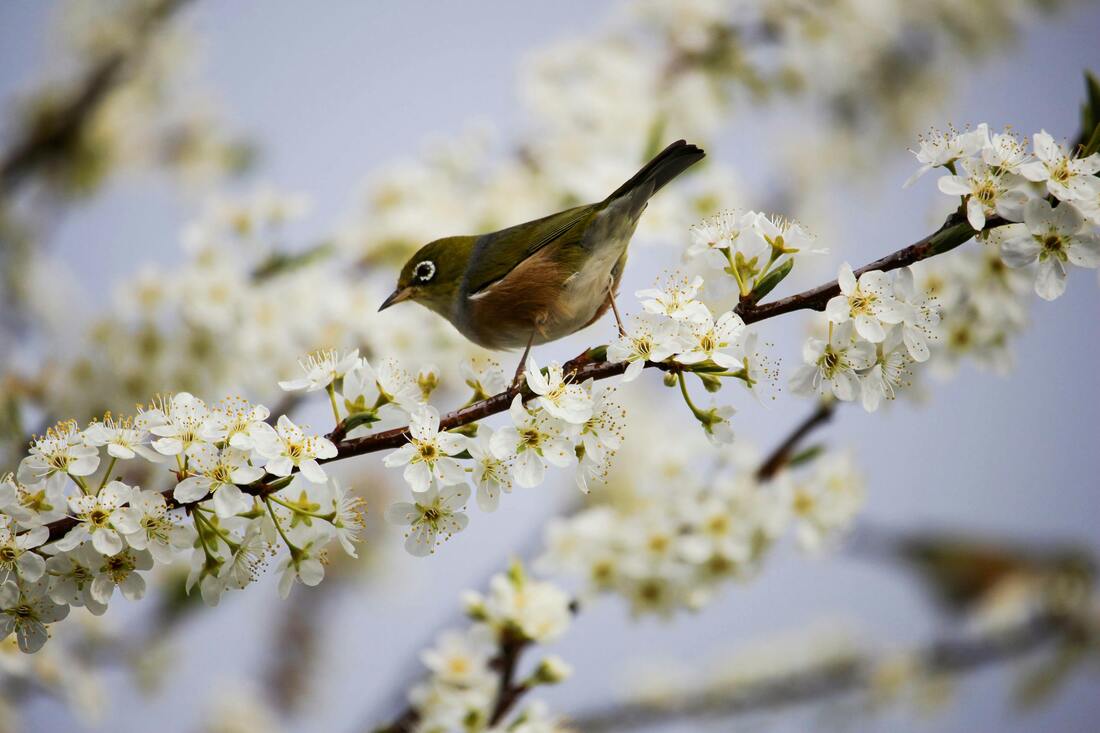

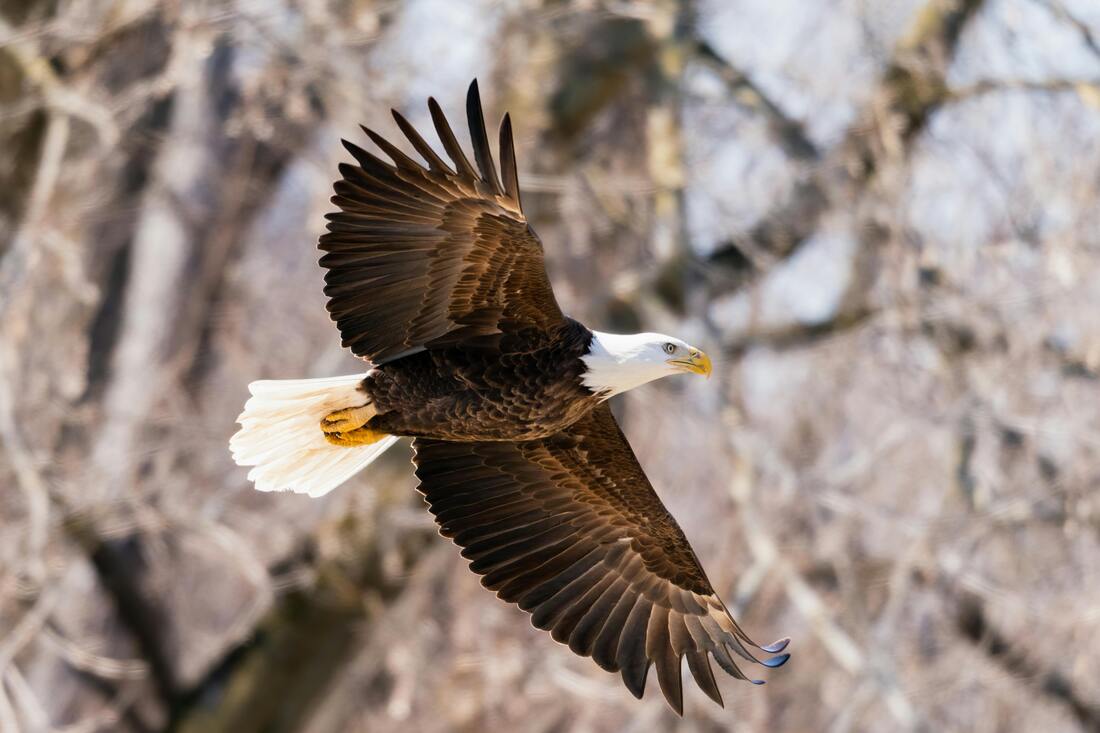
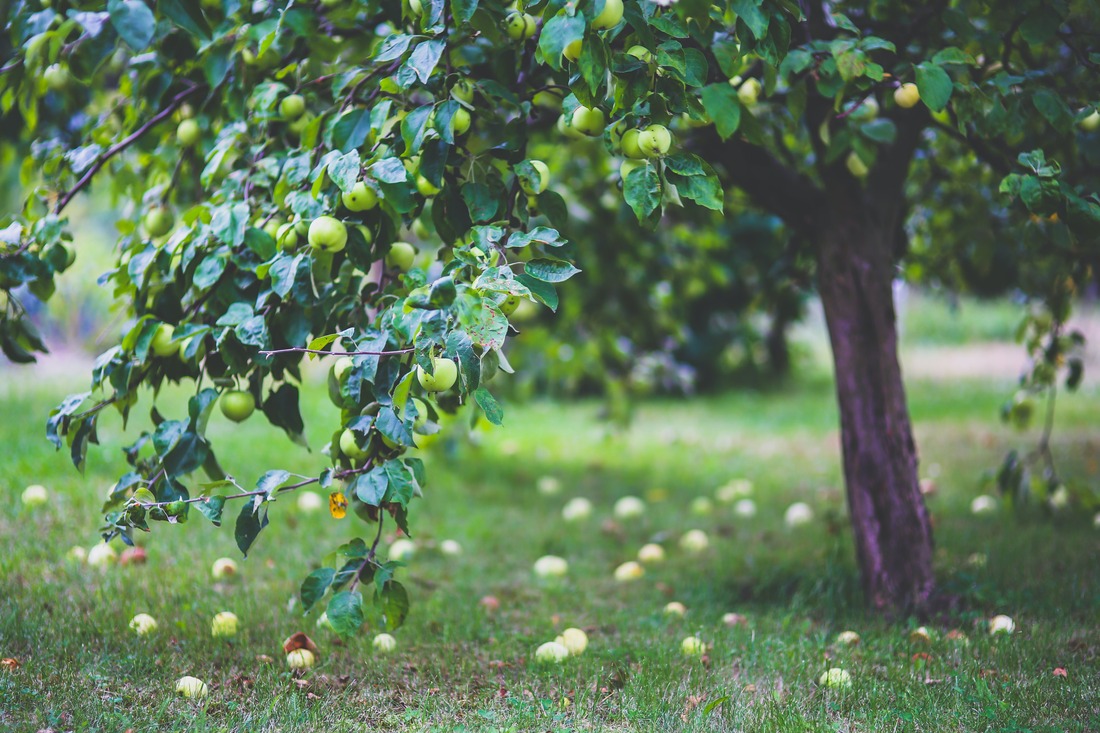

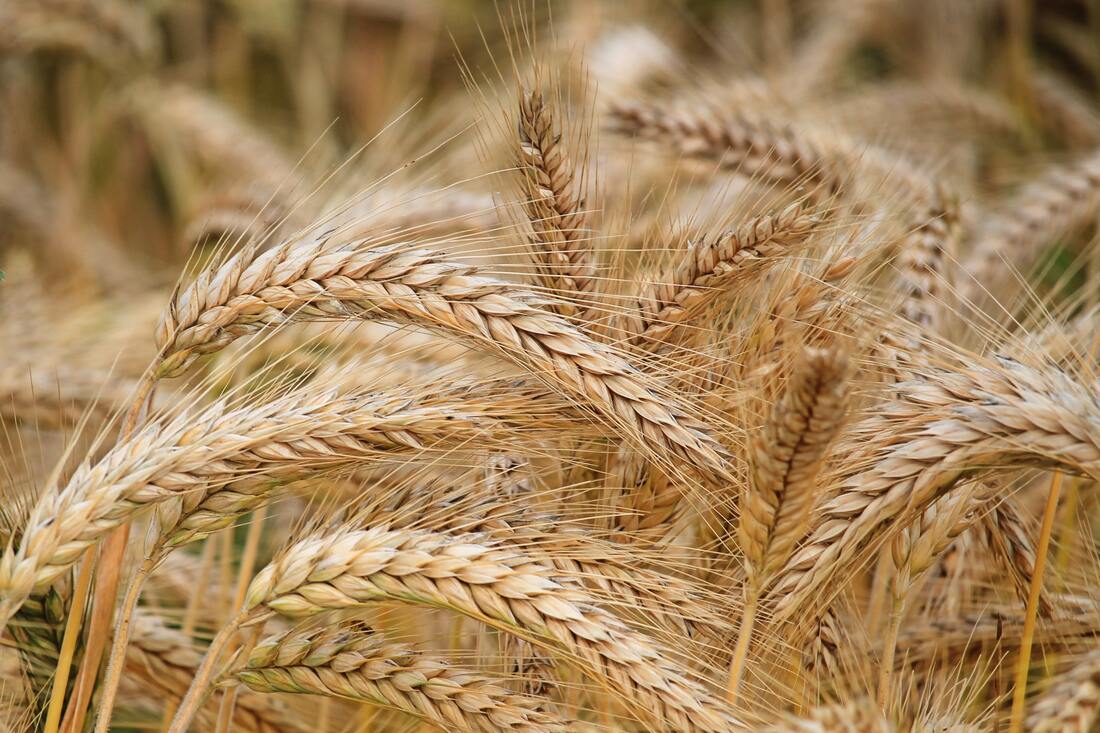
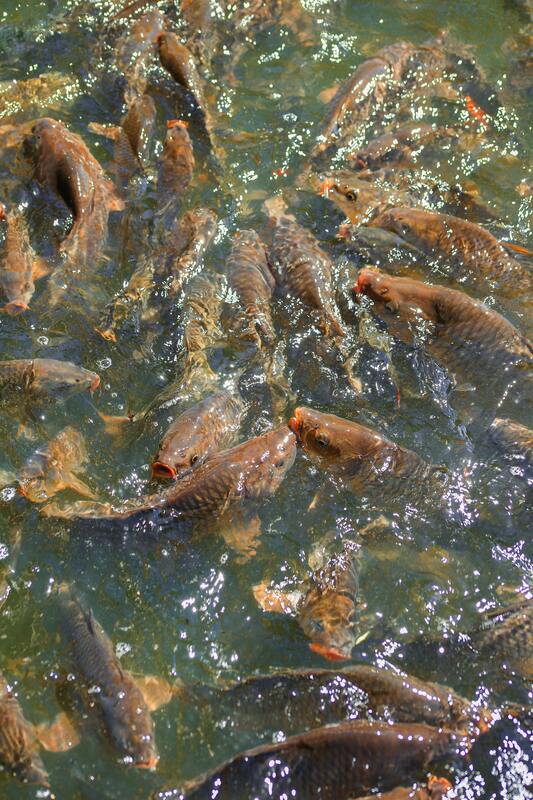
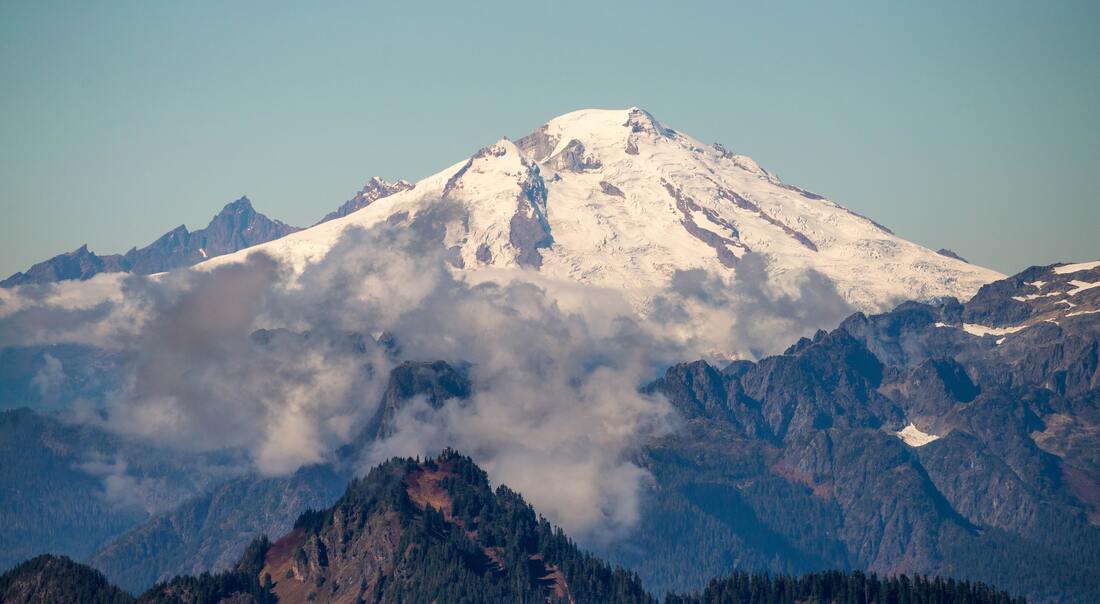
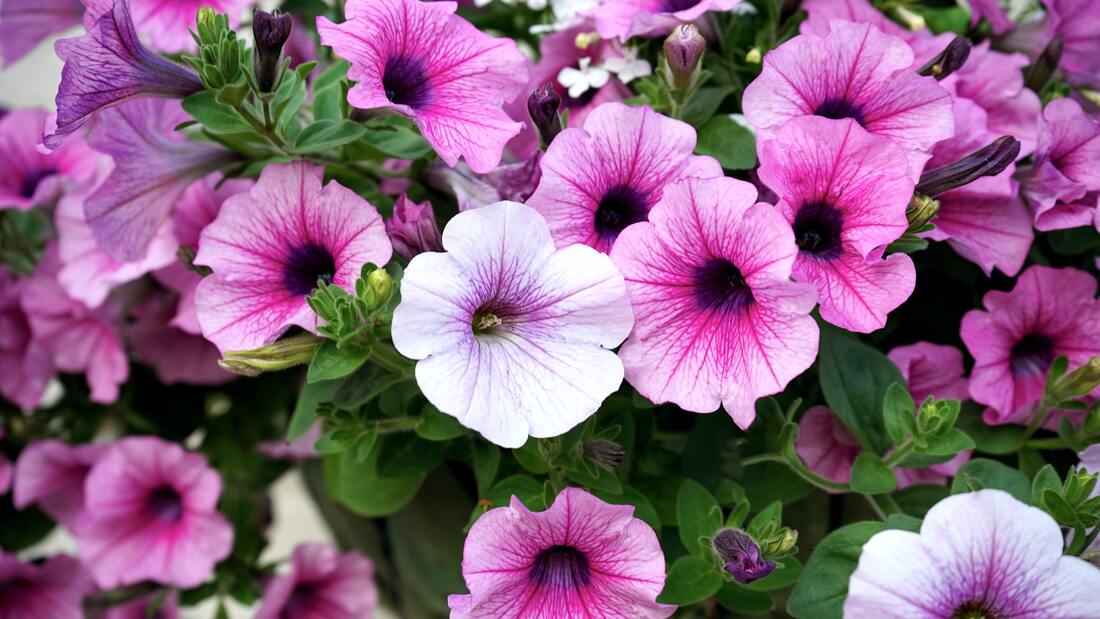
 RSS Feed
RSS Feed